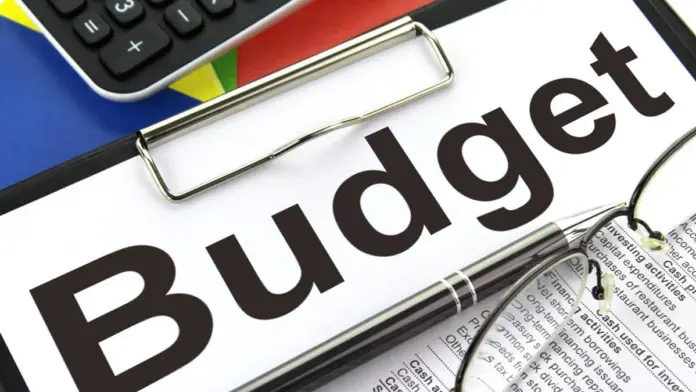Despite ongoing brawl in Punjab between the ruling coalition – led by the Pakistan Muslim League-N – and the PTI-PML-Q alliance, causing one constitutional crisis after the other and putting the economy in a perpetual state of crisis, the Punjab government has finally presented the provincial budget for the fiscal year 2022-23. Fighting off political challenges and providing relief to the masses during hard economic times was a real challenge for Chief Minister Hamza Shahbaz but, following in his father’s footsteps, he expressed his resolve to work for the betterment of the people and vowed to overcome the challenges. The budget making exercise for 2022-23 was a ‘herculean task’ because of the economic landmines laid by the Pakistan Tehreek-e-Insaf (PTI) and badly affecting the people.
Nevertheless, the government is working passionately to steer the country out of the present economic crisis and provide maximum relief to the masses. The budget 2022-23 reflects priorities of the government and aspirations of the people. It constructively and positively focuses on all those important sectors that need attention. The lion’s share fund to the development sector, especially social sector development, subsidy and relief package protecting commoners from the sharp impact of inflation, and last but not least increase in salary and pension of inflation-stricken employees are precisely the conspicuous tone of the budget, presented by Punjab Minister for Finance Awais Leghari. The budget aims to mitigate sufferings of the common man by allocating Rs190.58 billion for subsidy and relief package.
The budget proposes Rs685 billion for the Annual Development Plan (ADP) which is 22% up from last year’s Rs560 billion. The government has certainly won hearts of the people by presenting such a pro-people and pro-development budget. Equal access to quality education is the most potent social equalizer. Given the economic disparities plaguing our society, the dream of inclusive and sustainable development can’t materialize into reality unless we push open the doors of opportunities for quality education for all children. The government should be complimented for acknowledging the fact that quality education is essential to grow and develop as a society and the allocation of Rs56.2 billion speaks to this commitment.
Better health improves economic outcomes as health correlates positively with happiness, productivity, and an improved sense of personal well-being. Improved health conditions are also beneficial for social cohesion, especially in terms of equity. Acknowledging the fact that societies with better and more equitable health systems are more stable and function more effectively, the government has earmarked a total of Rs470 billion for the health sector that includes Rs296 billion for non-development and Rs174 billion for development side. Moreover, the allocation of a hefty increase in the Sehat Sahulat Programme, Rs5 billion for the Pakistan Kidney & Liver Institute (PKLI), Rs5 billion for up-gradation of teaching hospitals, Rs3 billion for shifting DHQ hospitals of four districts to modern technology, Rs2 billion for the provision of CT scan and MRI machines at the teaching hospitals gives evidence of the government’s commitment to providing quality healthcare to all citizens.
Punjab faces a critical challenge of unequal development. All socio-economic indicators show South Punjab is lagging behind rest of the province. To this end, the government has devised a multipronged strategy to enable regional equalization and has allocated Rs240 billion for South Punjab which hopefully will eradicate decades of long deprivation of the people. Realizing the fact that the bread and butter of this province come through hands of its diligent farmers, a total of Rs53.19 billion has been proposed for the agriculture sector which will certainly provide incentives and concessions to farmers and help improve efficiency of the sector. The budget also envisages a huge sum of money for irrigation, social welfare and protection, industries and skills development, women development and population welfare, energy projects, and sports and youth affairs.
Providing quality community services and delivering infrastructure that connects communities are some of the priorities of the government. To achieve this, a total of Rs164 billion has been earmarked for infrastructure development, including Rs80.8 billion to build roads, Rs8.9 billion for Punjab Intermediate Cities Improvement Investment Program, Rs2.40 billion for Punjab Rural Sustainable Water Supply and Sanitation Project, Rs2.4 billion for Water Resource Development and Rs1.4 billion for Water Treatment Plant. Tourism contributes to the growth and development of a country by adding tremendous economic value and benefits. The allocation of Rs1200 million for eco-friendly, cultural, recreational and adventure parks, etc and Rs700 million for preservation and restoration of gardens, forts, tombs, and temples, up-gradation of historical sites and archaeological sites, etc is a proof that the government does not only believe in the promotion of tourism in the province but creation of more employment and income opportunities as well.
The world has been moving fast towards digitalization. Acknowledging that all-pervading intervention of technology is the key to our future strides of development, the government has allocated Rs300 million for Digital Punjab, Rs124 million for Smart Monitoring of Development Projects, Rs346 million for Online Statistical System. To surprise of many, the budget puts a special focus on the initiatives for the downtrodden despite financial constraints and will be remembered for its subsidy and relief package, tax concession, and emphasis on improving education, health, and living conditions of the masses. Undoubtedly, the budget has conveyed a positive message to the people and is a major step forward in creating a province where the quality of life is better, education is accessible to all and above all healthcare and social protection are available to all citizens whether in the rural hamlets or the urban clusters.






